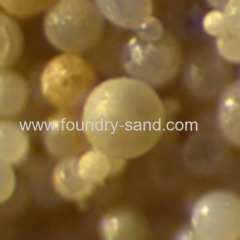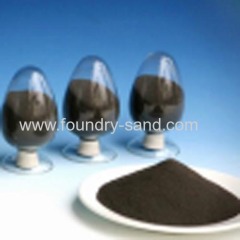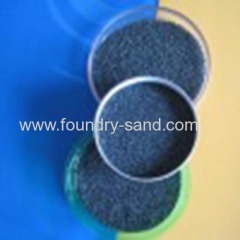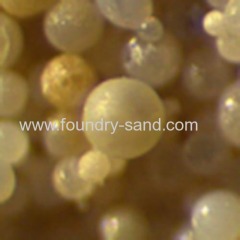
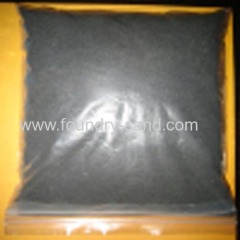
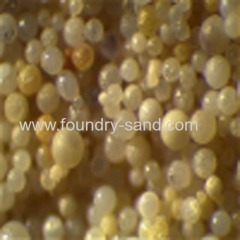
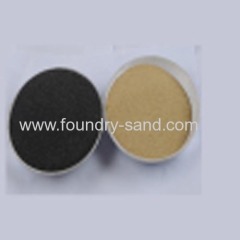
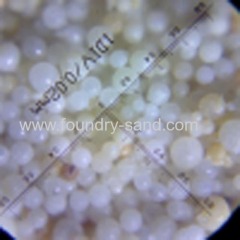
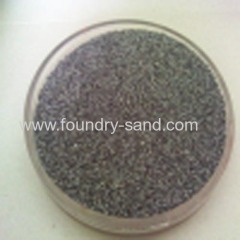
Foundry Sand Recycling Sale
| Min. Order: | 20 Ton |
|---|---|
| Trade Term: | FOB,CFR,CIF,DDP,DAP,EXW |
| Payment Terms: | L/C, T/T |
| Supply Ability: | 30,000 tons per year |
| Place of Origin: | Henan |
Company Profile
| Location: | Luoyang, Henan, China (Mainland) |
|---|---|
| Business Type: | Manufacturer |
| Main Products: | High Quality Chromite Sand Service, Ceramsite For Aluminum Casting Sale, Green Sand Factory Price, High Quality Casting Sand Price, High Quality Foundry Coating |
Product Detail
| Model No.: | AFS75 |
|---|---|
| Means of Transport: | Ocean, Air |
| Brand Name: | Kailin |
| Shape: | Ball |
| Color: | Brown |
| Refractoriness: | 1800℃ |
| PH: | 7-7.3 |
| Grain size distribution: | AFS 20~ AFS 180 |
| Application: | foundry ,casting, resin coated sand |
| Bulk density: | 1.95~2.05(g/cm3) |
| Mohs' hardness: | 6.5~7.5 |
| Resin: | Low |
| Production Capacity: | 30,000 tons per year |
| Packing: | 1000kgs bag |
| Delivery Date: | Within 15 days of receipt of the advance payment |
Product Description
We are seeking global co-operation agents for our products.
Chemical &Physical Index

Properties of Kalin Ceremic Sand (Compared with other special Sand)

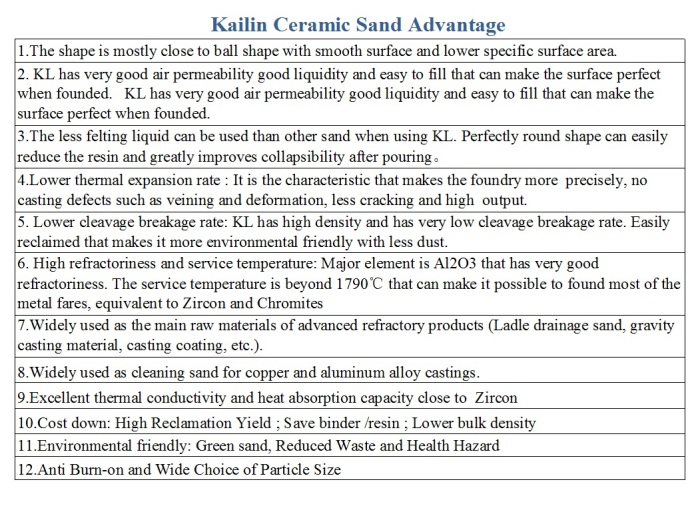
Origin of kailin ceramic sand
About the origin and the marketing of kailin ceramic sand,Mr. Liu Mandui,the general manager, once told a story as follows.
"Early in 1997, I engaged in the production and research work of resin coated sand. One day, a few friends and I walked into a ceramic sand production plant which product electricity-melting bauxite sand, and found a special artificial sand. It has very good round appearance and smooth surface. Oh my God! Isn't that the optimal sand which foundry men looked for? When we left the plant, I caught some sand sample for further testing.
"Two years later, in August 1999, we found a company, Luoyang Kalin Foundry Material Ltd., to manufacture and market those molten bauxite sand---kailin ceramic sand. At that time we made ceramic sand by calcining the bauxite ore. Soon we found that this kind of sand were not suitable for foundry use due to it's lower refractoriness. Not long after that, we started to use melting and blowing process to produce ceramic sand.
"So, here comes a question. What's the primary difference between the oil field using ceramic sand and the foundry using sand ? In my opinion, for oilfield ceramic sand, we mainly concern it's crush strength, but for foundry use ceramic sand, refractoriness maybe is the first consideration. For it's good Eucharistic for molding and core making, it's a real treasure in foundry, we called it "ceramic sand"in Chinese. Soon, there appeared the word "ceramic sand"in china foundry trade circle .
"In 2000, Luoyang Kalin Foundry Material Ltd. Issued it's first ceramic sand ad as "ceramic sand " on the famous monthly named "foundry"sponsored by the CFA. From then, we have kept this ad on it for about 15 years. At the same time, we have marketed the ceramic sand from north to south, from china to abroad. and in 2005 we registered a trade mark as "ceramic sand"in China and declared a patent (patent number: 20,051,001,799.6)
"Along with the marketing and application of the ceramic sand, more and more foundries have taken the advantages of lower casting costs, less foundry waste emission and higher casting quality contributed by using kailin ceramic sand. Today, the kailin ceramic sand, for its superior performance, expand its application quickly, such as use in resin bonded sand, sodium-silicate sand, green sand, lost foam, vacuum molding process, etc.. We would like it to contribute to the progress of foundry forever."
Special Sand

Application of Ceramic Sand

Casting Models

Factory building


Equipment photo

Application range

SGS

FAQ
Q1:What is the lead time ?
A:Sample is 3~5 days, mass production time is about 10~15days .
Q2.Do you have any MOQ limit?
A:Our MOQ is one container includes 20 tons
Q3:Are you manufactory or trading company?
A:We are manufactory.
Q4: What kind of your products?
A:Our main products is ceramic sand .
Why ceramsite?
1.Prevention of sand expansion defects, especially finning veining;
2.Elimination of gas-forming additives;
3.Prevention of reactions between metal and moulding sand;
4.Prevention of metal penetration;
5.Reduction of core weight;
6.Improved flowability of the moulding sand;
7.Influence on the formation of microstructure;
8.Pouring of thin-walled castings.


